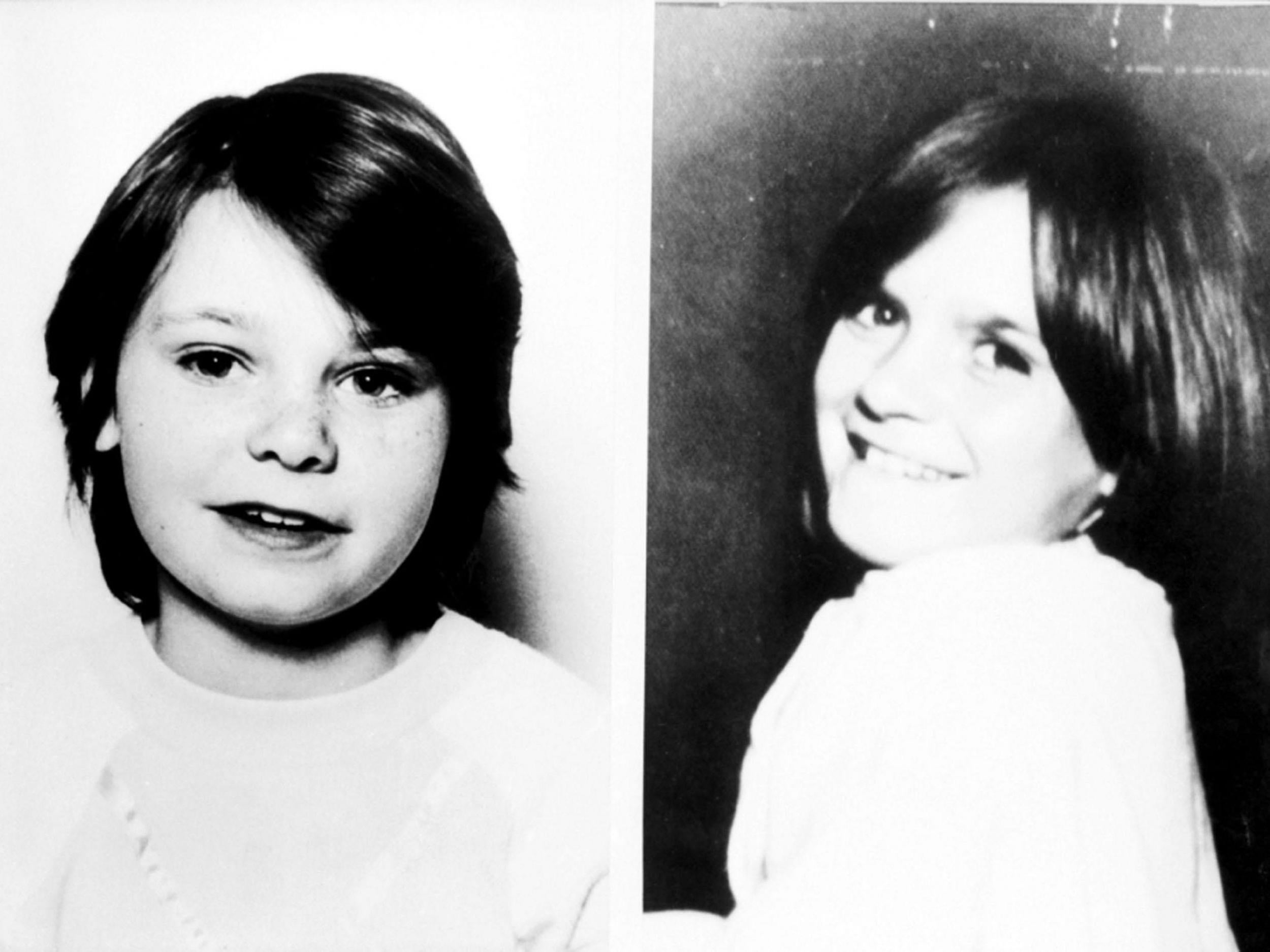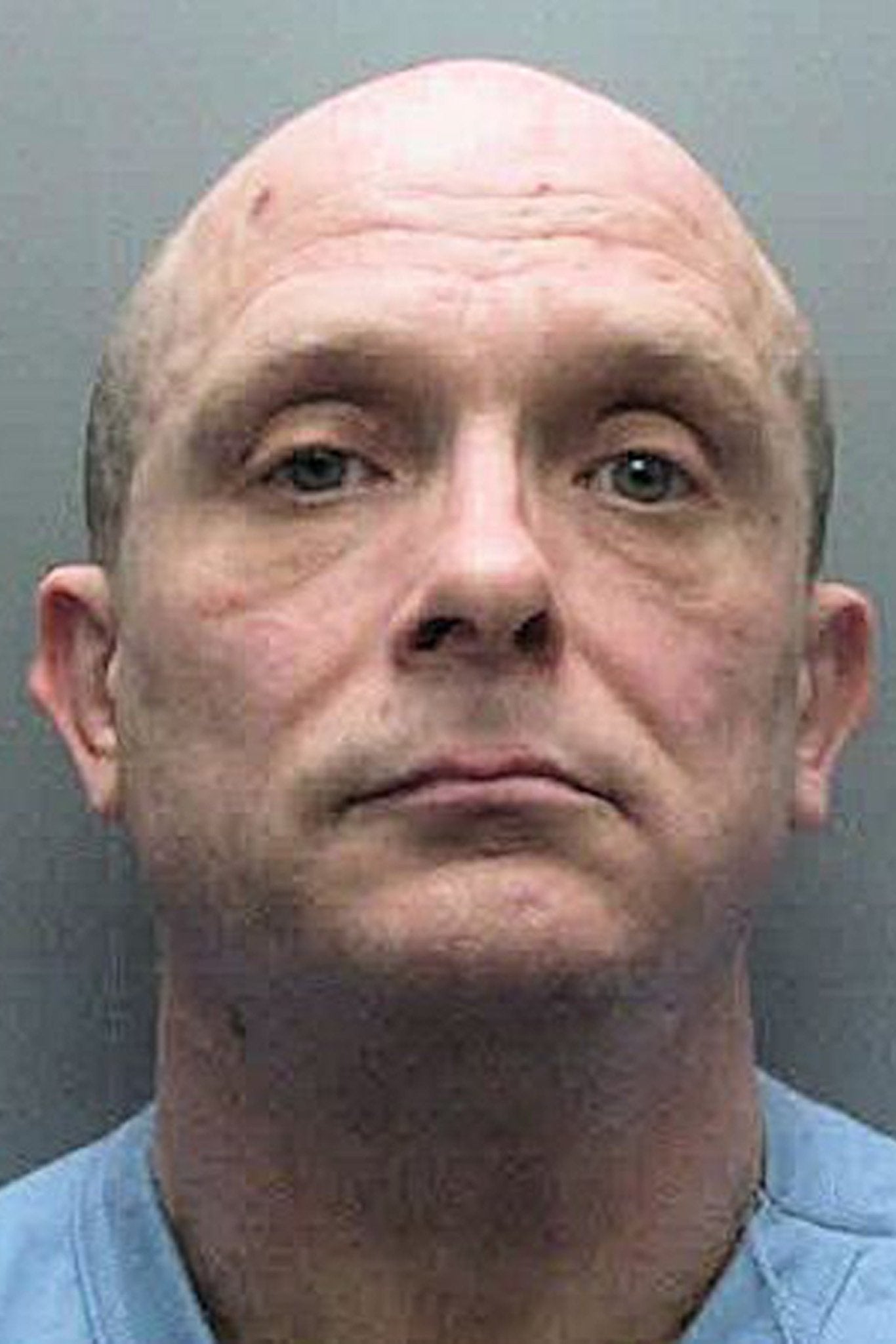Paedophile who murdered two young girls gave himself away with details only killer could have known, court told
Russell Bishop is being retried after being acquitted of murdering Karen Hadaway and Nicola Fellows, and going on to kidnap and sexually assault another Brighton schoolgirl three years later

A predatory paedophile gave himself away by telling police and friends details of how two nine-year-old girls had been found murdered that only the killer could have known, a court heard.
Russell Bishop, 52, gave a statement to police describing how the bodies of Karen Hadaway and Nicola Fellows were huddled together with blood-coloured foam on the latter girls’ lips.
The only problem, said Brian Altman QC, prosecuting, was that despite what he claimed, Bishop had not been close enough to the bodies when they were discovered to have been able to pick out such detail.
Instead, Mr Altman alleged, Bishop only knew the detail because he had sexually assaulted and murdered the girls the day before, in Wild Park, Brighton, on October 9 1986.
“There is simply no possibility that the defendant could have been in possession of the detail of the precise situation and position of the girls and the foam or froth on Nicola’s lips unless he had seen it with his own eyes from very close,” Mr Altman explained.
“The difficulty is he just could not have seen what he claims at the time of the finding as he did not get close enough to see it with such detail.
“That leaves only one possibility: he was able to describe what he did because that is how he left those two little girls, having killed and sexually assaulted them.”

The Old Bailey also heard claims that Bishop had seemed “grief-stricken” when he falsely claimed to a friend that he had been one of those who saw the bodies when they were discovered.
“If he did appear to be grief-stricken,” Mr Altman said, “Then he was playacting.”
Days later, Mr Altman said, Bishop told a very different story to another friend who asked about his reaction on finding the bodies.
“In in stark relief to the [earlier] grief-stricken impression,” said Mr Altman, “The defendant told his friend that it did not bother him at all.”
Bishop, the court heard, also added the detail that “One [girl] was lying on her back and the other one was lying across the other one’s stomach”.
The prosecution alleges that only the murderer or those who discovered the bodies could have known this.
Bishop denies murdering the two girls.
The prosecution, however, claims he cheated justice when a jury cleared him of killing the girls after he was put on trial for their murder in 1987.
Three years after walking free from that 1987 murder trial, Bishop kidnapped, indecently assaulted and attempted to kill a seven-year-old girl in Brighton, in February 1990. The girl survived and Bishop was convicted for this attack.
The prosecution is now putting forward new DNA evidence to support its claim that Bishop strangled and murdered the girls, before joining the search for them in a “cynical and deliberate attempt to divert attention away from himself.”
During this search, Mr Altman said, Bishop also gave himself away with “pre-emptive, semi-confessional statements” suggesting the girls were dead when everyone else searching for them thought they might still be alive.
Mr Altman described to the jury how Bishop went through the charade of pretending to get his pet dog Misty to try to track the scent of the girls while in the company of PC Christopher Markham.
The court how after Bishop said the dog had “lost the scent” PC Markham proposed rejoining the other searchers.
Mr Altman told the jury that Bishop “then said, quite suddenly, that he would not like to continue searching on his own in case he found anything, adding he would ‘hate to find the girls, especially if they had been messed up’.
“PC Markham was taken aback by this, as it simply had not occurred to him that the girls might be found dead; he had assumed they would be found alive.”
The court heard that later that afternoon, Bishop told PC Paul Smith who was searching in Wild Park: “I reckon they [the girls] have either gone north or if they’re here they’re finished”.
The jury was told that Bishop then said he was not searching any more, explaining, “because, well if I found the girls and if they were done in I’d get the blame, I’d get nicked”.
Mr Altman told the jury: “If the defendant had nothing to do with the girls’ disappearance and was innocent of their murders, you might well wonder why, even before they had been found, he was the one raising the prospect that they might be found dead and that if he found them he would get the blame for it.”
Mr Altman said that as Bishop was being driven home after giving his police statement on the night the girls’ bodies were discovered, he told officers that he thought he was “the number one suspect.”
Five days later, when questioned again by the police, the 20-year-old Bishop became agitated and started contradicting himself during the course of a single interview, the court heard.
Mr Altman said that he at first “flatly denied” having gone into the area where the bodies were found, even when shown his earlier statement in which he had claimed to have touched them to check for pulses.
The court heard Bishop said the claim to have checked for a pulse had been included in his earlier signed statement by mistake.
“You may think that was some mistake to make,” Mr Altman said.
Mr Altman added that Bishop’s story veered back and forth in the same interview between having checked for a pulse and having not done so. When the police asked him to explain his changes of mind, Mr Altman said, “He could not answer and became agitated.
“He insisted the truth was that he did not touch the bodies and said what he had said to feel important.”
Mr Altman said that during a third interview, on November 1 1986, Bishop said the closest he got to the girls was between 7ft and 8ft.
“He accepted that when he had said he could see blood-flecked foam on Nicola’s mouth, that was a lie,” Mr Altman said. “He said he had been guessing when he had said that before.”
Mr Altman added that when Bishop was arrested on suspicion of murder and cautioned, “His response was to say, ‘No, no, it’s not me, f*ck off, leave it out.’”
The trial continues.
